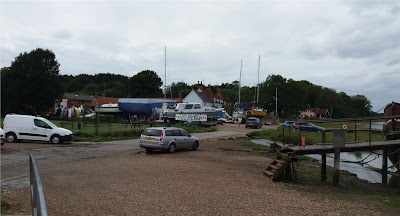Anyone who has been following this blog recently, will be aware that I didn’t attend CAMRA’s Great British Beer Festival (GBBF), this year. I won’t repeat my reasons for not attending the Campaign's flagship event, but without wishing to sound smug, I’m rather glad I didn’t.
Last Friday, at Fuggles Tonbridge for their official opening night, I bumped into a friend, and over a few beers, the subject of GBBF cropped up. My friend had attended the festival two days previously, and he was not exactly brimming over with praise for the event. His two main gripes were both cost-related, and were the exorbitant entrance fee and the equally high price of the beer.
 |
| GBBF 2012 |
He then moved on to the price of a pint, saying he’d been charged the equivalent of £4.40 a pint, for a very ordinary, mid-strength stout. On the plus side, the festival wasn’t too crowded, which was perhaps not surprising for mid-afternoon on Wednesday.
Now I know it’s fashionable to knock CAMRA at the moment, but with GBBF remaining one of the largest and most successful beer festivals in the world, what’s not to like?
 |
| Food offerings |
All good, positive stuff; I even went on to say, “I couldn’t fault it at all. There was plenty of seating; something the festival lacked just a few years ago. There was a huge variety of different food stalls, selling all manner of different foodstuffs - essential at an event like this for soaking up all that beer which people imbibe. There was adequate room in which to circulate and, for those of us who remember the greenhouse effect, back in the 1990’s, from that massive glass canopy at Olympia, air-conditioning! Consequently, customers remained cool as did the beer.”
So what has changed, and as someone who didn’t bother to attend, am I the right person to be asking these questions? Well over the years I’ve been to quite a few Great British Beer Festivals, including the first one at Alexandra Palace as well as the one held under canvas following the fire which destroyed much of that particular venue.
 |
| Earls Court 2009 |
In short, I’ve been to a fair few festivals, and have seen GBBF evolve from a slightly shambolic, and at times totally chaotic happening, to today’s slick and thoroughly professional event. And therein lies the rub, as having reached this state are the organisers now just content to rest on their laurels and lie back whilst the money rolls in? Is this strategy starting to unwind, and does GBBF offer sufficient to attract an increasingly discerning audience of beer lovers?
 |
| Champion Beer of Britain finalists 2016 |
So where were the really interesting beers and where were the really great beers? The answer appears to be on the foreign beer bars, with the American Cask Bar not only taking the lead, but proving so popular that it ran out of beer by the end of Thursday evening. Isn’t this a rather damming indictment of a festival designed to showcase the very best of British beer? The popularity of the American Cask Bar demonstrates there is a demand for complex and challenging beer, and there is no reason why such beer cannot be British real ale.
 |
| GBBF 2013 |
Some have argued that this is down to cost; CAMRA is rumoured to be strapped for cash, and the decision to charge for programmes – especially when they are packed full of adverts which will have more than covered the cost of printing, seems another penny-pinching way of trying to reduce the reported deficit. I also saw a comment that the decor was “minimalist at best”, with just a few banners in support of CAMRA. The same observer claimed that the only splashes of colour and excitement were those provided by the brewery bars!
 |
| American Cask Bar 2013 |
I appreciate the necessity of the entrance fee, given the prestigious nature
of the venue and the fact it is in the heart of our capital city, but with the
festival relying on an army of unpaid volunteers, surely the double figure entrance
fee is unjustified. CAMRA is a large, powerful and influential organisation
which is more than capable of putting on a much more inspiring festival if they
chose to. With so many interesting and, at times, amazing home-produced beers
available, it's disappointing that instead they appear to have kept with the
same tried and tested “safe” formula of previous years.
 |
| Foreign beers again finding favour |
Playing safe, whilst trying to make as much money as
possible, surely isn’t what GBBF and the Campaign for Real Ale are all
about, but it's not too late to turn the festival around. The Great British
Beer Festival is a long-established event which commands a large attendance, a
massive profile and an enormous amount of goodwill, inspired by the 1,200 odd
volunteers who every year, give up their time to ensure the festival is a
success. This side doesn’t need to change, but the thinking behind the event
definitely does.
With no overall strategy, or even an attempt to see the
bigger picture, the inertia of years of doing things a certain way has left the
festival floundering and unsure of its real purpose in an increasingly crowded
beer market. So please, let’s have less bland Golden Ales, Ordinary
Bitters and “ordinary-tasting” milds, and let us really celebrate all that is
good with British beer.
If this means less involvement in the ordering process from local
branches, with their politics and individual prejudices, and more input from
people who really know about beer, then so be it. It may even mean the
involvement of a company which specialises in organising events. There are
plenty of them about, or is this a step too far?









































